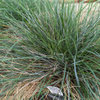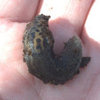Vole Conundrum
veeta
11 years ago
More Discussions
I am wondering if there is any point in my attempting to control the vole population that visits my compost pile. For the past three years, they have been present off-and-on, but they do not seem to bother my ornamentals or vegetables--I have never noticed any effect. I am guessing this is because they are well-fed in the compost pile! I don't want to be a bad citizen, but I don't see any point in action because my neighbor has a wild, unkempt yard, so they will always have refuge.
Once I found them nesting in the compost pile, so I am now turning it more often. We have plentiful hawks and cats in the neighborhood, and I have seen one cat walking off with a vole carcass on more than one occasion.
Does anyone think I should be doing anything? In addition to not wanting to deal with traps or poisons (especially considering the hawk and cat predators), I honestly worry that depriving them of the compost will just result in them feeding on my garden. There is really no way to eradicate them. What do you think?



ken_adrian Adrian MI cold Z5
rhizo_1 (North AL) zone 7
Related Professionals
Folsom Landscape Architects & Landscape Designers · Roosevelt Landscape Architects & Landscape Designers · Walnut Landscape Architects & Landscape Designers · West Chester Landscape Architects & Landscape Designers · Aloha Landscape Contractors · Camp Verde Landscape Contractors · Firestone Landscape Contractors · Golden Landscape Contractors · Holtsville Landscape Contractors · Lexington Landscape Contractors · Mashpee Landscape Contractors · Mesa Landscape Contractors · Raleigh Landscape Contractors · Dent Stone, Pavers & Concrete · Immokalee Stone, Pavers & ConcreteKimmsr
kimpa zone 9b N. Florida.
veetaOriginal Author
rhizo_1 (North AL) zone 7